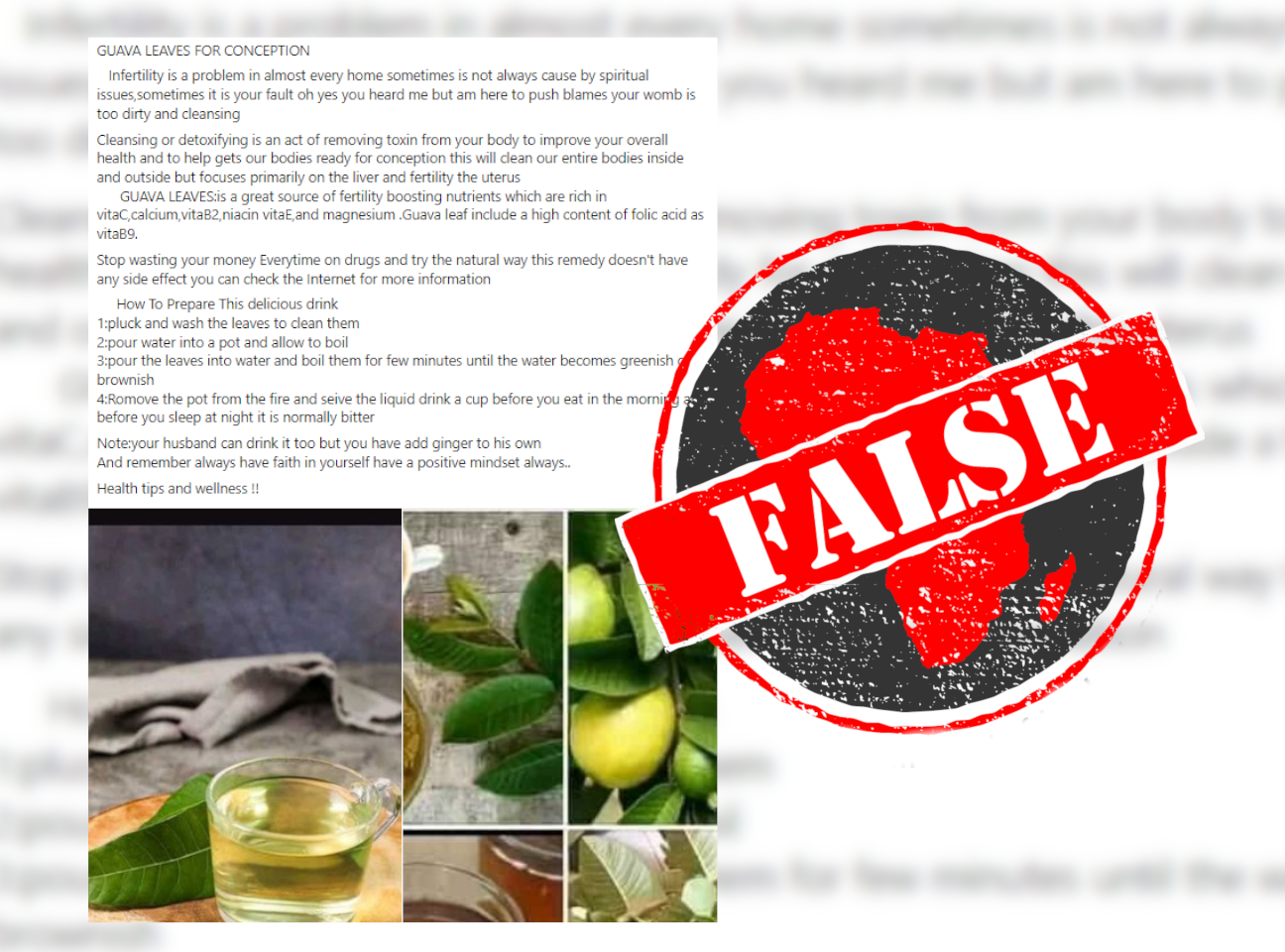“Guava leaves for conception,” reads the headline of a message posted on Facebook on 19 March 2022.
It claims that a drink made with guava leaves can cure infertility because they contain “fertility boosting nutrients”.
“Stop wasting your money every time on drugs and try the natural way. This remedy doesn't have any side effect,” it reads.
“Your husband can drink it too but you have to add ginger to his own.”
The message explains how to prepare the drink and gives the dose needed.
Guava or Psidium guajava is a small tree cultivated for its edible fruit. It is grown in tropical regions across the world.
But can the leaves of this tree cure infertility in men and women?

No scientific evidence to support the claim
The World Health Organization defines infertility as “disease of the male or female reproductive system defined by the failure to achieve a pregnancy after 12 months or more of regular unprotected sexual intercourse”.
The WHO says infertility can be caused by low sperm count, problems in the shape or movement of sperm in men; and abnormalities of the ovaries, uterus and fallopian tubes in women.
Paul Ekwere, a professor of urology at the University of Calabar in southern Nigeria, said the drink cannot cure infertility.
Ekwere is currently researching male infertility. He told Africa Check there is no scientific evidence to back the claim.
“The male and female bodies are different and infertility can be caused by various factors. It is not possible that one approach can be used to cure infertility in both men and women,” he said.
Republish our content for free
For publishers: what to do if your post is rated false
A fact-checker has rated your Facebook or Instagram post as “false”, “altered”, “partly false” or “missing context”. This could have serious consequences. What do you do?
Click on our guide for the steps you should follow.
Publishers guideAfrica Check teams up with Facebook
Africa Check is a partner in Meta's third-party fact-checking programme to help stop the spread of false information on social media.
The content we rate as “false” will be downgraded on Facebook and Instagram. This means fewer people will see it.
You can also help identify false information on Facebook. This guide explains how.


Add new comment